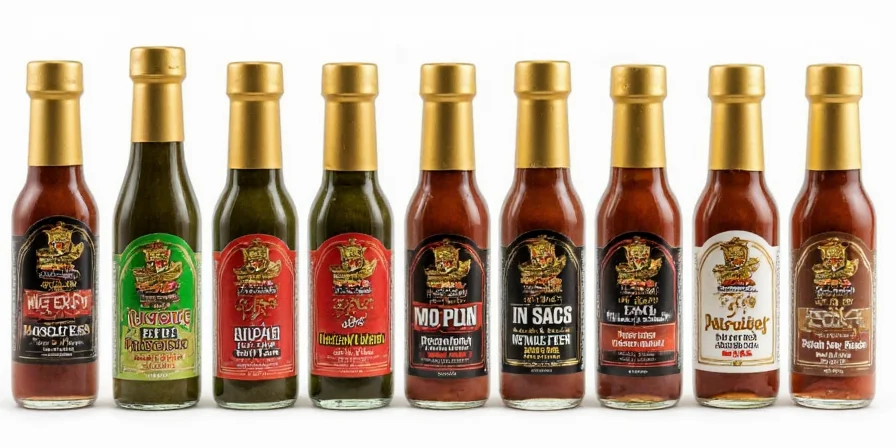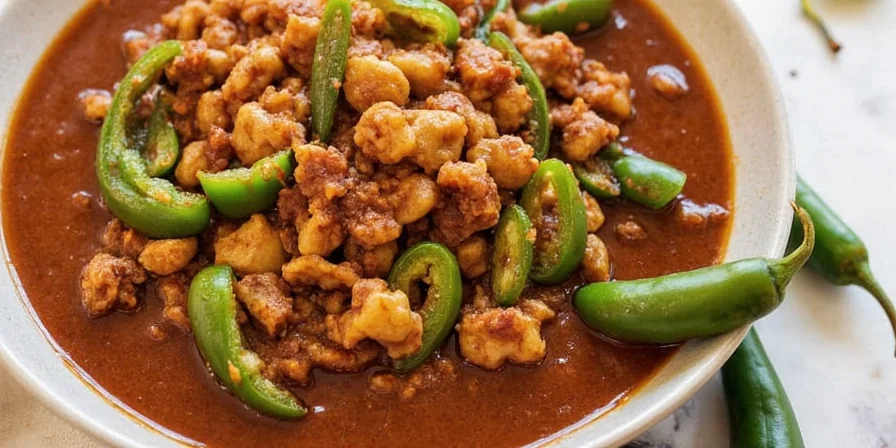10 Sizzling Secrets of Spicy Mexican Foods: From Jalapeños to Mole!
Welcome, spice warriors and chili connoisseurs! If your mouth tingles at the thought of jalapeños and your heart races for habaneros, you've come to the right place. Today, we're diving headfirst into the fiery world of spicy Mexican foods, uncovering everything from heat levels to historical tidbits that will spice up your next taco Tuesday — or any day, really.
Why Spicy Mexican Foods Rule the Global Spice Traditions
Mexico’s culinary landscape is like a symphony conducted by chilies. Each region brings its own instruments — fresh salsas, dried peppers, smoky flavors — creating a harmonious blend of fire and flavor. Whether it's the smoky chipotle in the north or the earthy pasilla in Oaxaca, Mexican cuisine knows how to bring the heat without sacrificing taste.
A Brief History of Fire
The love affair between Mexico and chilies goes back thousands of years. Ancient civilizations like the Aztecs and Mayans used chilies not only for food but also for medicinal and religious purposes. So next time you bite into a spicy tamale, remember — you're participating in a ritual older than most countries!
Spice Level Breakdown: Which Chili Will Make You Cry?
| Chili Pepper | Scoville Heat Units (SHU) | Common Use |
|---|---|---|
| Jalapeño | 2,500–8,000 | Salsa, nachos, stuffed poppers |
| Serrano | 10,000–23,000 | Salsas, tacos, soups |
| Poblano (Dried: Ancho) | 1,000–2,000 | Chiles rellenos, mole sauces |
| Habanero | 100,000–350,000 | Salsas, marinades, hot sauces |
| Ghost Pepper (Bhut Jolokia) | ~1,000,000+ | Super-spicy challenges, competitive eating |
Pro Tip:
If you’re ever in doubt about a dish’s spiciness, ask for “sin picante” if you want it mild, or “muy picante” if you're feeling brave!
Top 10 Spicy Mexican Dishes You Must Try
- Tacos al Pastor – Marinated pork cooked on a vertical spit, often topped with pineapple and a kick of red salsa.
- Chiles en Nogada – Poblano peppers filled with meat, nuts, and raisins, topped with a creamy walnut sauce and pomegranate seeds (seasonal and stunning).
- Mole Poblano – A rich, complex sauce made with chocolate, spices, and dried chilies. It's like a symphony in your mouth.
- Ceviche Típico – Citrus-marinated seafood with chopped onions, tomatoes, and plenty of cilantro and chili.
- Enchiladas Rojas – Corn tortillas rolled around cheese or chicken and drenched in a spicy red chili sauce.
- Barbacoa de Borrego – Slow-cooked lamb seasoned with garlic, cumin, and red chilies. Perfect for a hearty stew experience.
- Pozole Rojo – A traditional soup with hominy and pork, swimming in a rich red chili broth.
- Salsas Locas – From green avocado-based salsas to volcanic-red roasted tomato versions, each level of spice tells a story.
- Chorizo Tacos – Crumbled, spicy Mexican sausage served in warm corn tortillas.
- Miguelito Shot – Not a dish, but a drink! Tequila, lime, and chili salt rimming the glass — it's like a party in your mouth.
The Science of Spice: Why Do We Love the Burn?
You know that tingling sensation after biting into a habanero? That’s capsaicin — the compound responsible for the heat. Interestingly, capsaicin triggers the release of endorphins, giving us a natural high. So yes, spicy food can be addictive… literally!

This burning effect isn’t just a random quirk. Evolutionarily, chilies developed capsaicin to deter mammals from eating them (birds don’t feel the burn), allowing their seeds to spread more effectively via avian digestion. Nature’s clever, huh?
Spice It Up: How to Handle the Heat Like a Pro
- Use dairy to cool down: Milk, yogurt, or even a spoonful of sour cream can neutralize the burn faster than water.
- Seed removal: Most of the heat comes from the seeds and white membranes. Removing them before cooking gives you flavor without the full-force fire.
- Toast your chilies: Dry-toasting chilies in a skillet enhances their depth of flavor and mellows some of the heat.
- Balance with sweetness: A touch of honey or sugar can balance out the spice, especially in sauces and moles.
- Wear gloves: Capsaicin doesn't play nice with skin. Wear gloves when handling raw chilies to avoid painful eye rubs later.
Spicy Food Around the World vs. Mexican Firepower
| Cuisine | Signature Spicy Dish | Key Ingredients | Heat Level (1-10) |
|---|---|---|---|
| Mexican | Mole Poblano | Dried chilies, chocolate, spices | 6 |
| Thai | Pad Thai with Bird’s Eye Chilies | Bird’s eye chili, fish sauce, lime | 8 |
| Indian | Vindaloo Curry | Red chilies, vinegar, tamarind | 7 |
| Korean | Bibimbap with Gochujang | Fermented chili paste, sesame oil | 5 |
| Moroccan | Harira Soup | Harissa paste, tomatoes, chickpeas | 4 |
Spicy Desserts? Oh Yes, We Went There
Mexico takes dessert to a whole new level by mixing sweet and spicy. Think:
- Chocolate covered with powdered chili
- Spiced flan with a hint of cinnamon and serrano
- Pineapple slices dusted with chili powder and lime
It’s weirdly wonderful — kind of like falling in love while being mildly on fire. Worth it.

DIY Spice: Making Your Own Chili Powder and Hot Sauce
Want to level up your spice game at home? Here’s how to make your own:
Homemade Chili Powder
- Ingredients: Dried ancho, guajillo, and pasilla chilies
- Toast chilies in a dry pan until fragrant
- Remove stems and seeds
- Blend until fine
- Store in an airtight container
Simple Hot Sauce
- Ingredients: Jalapeños, garlic, lime juice, salt
- Blend all ingredients until smooth
- Strain for smoother texture (optional)
- Bottle and refrigerate

Spice & Ice: Surprising Cooling Pairings
When the heat becomes too much, reach for these cooling combinations:
- Avocado crema on spicy tacos
- Cucumber-lime agua fresca
- Pickled jalapeños — they add tangy relief
- Rice pilaf to absorb excess heat
- Coconut rice or mango sorbet for dessert contrast
Conclusion: Embrace the Burn and Celebrate the Spice
Spicy Mexican foods are more than just a way to sweat through your dinner — they’re a celebration of culture, history, and bold flavor. Whether you’re savoring a delicate mole or daring yourself to try ghost pepper tacos, there’s always something new to discover in the world of chilies.
So go ahead, embrace the burn, tip your sombrero to the ancient chefs who started this fire, and keep exploring the vibrant, flavorful world of Global Spice Traditions. And remember: in the words of Chef Liu Wei, “The best meals leave your eyes watering and your soul smiling.”











 浙公网安备
33010002000092号
浙公网安备
33010002000092号 浙B2-20120091-4
浙B2-20120091-4